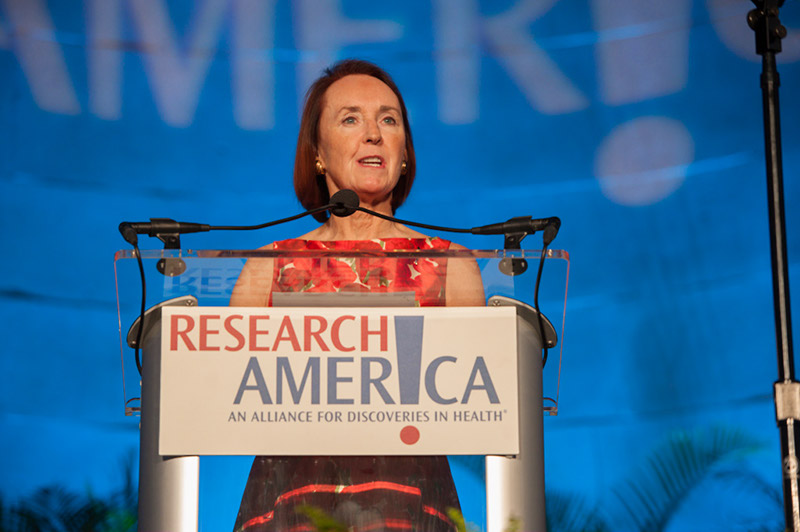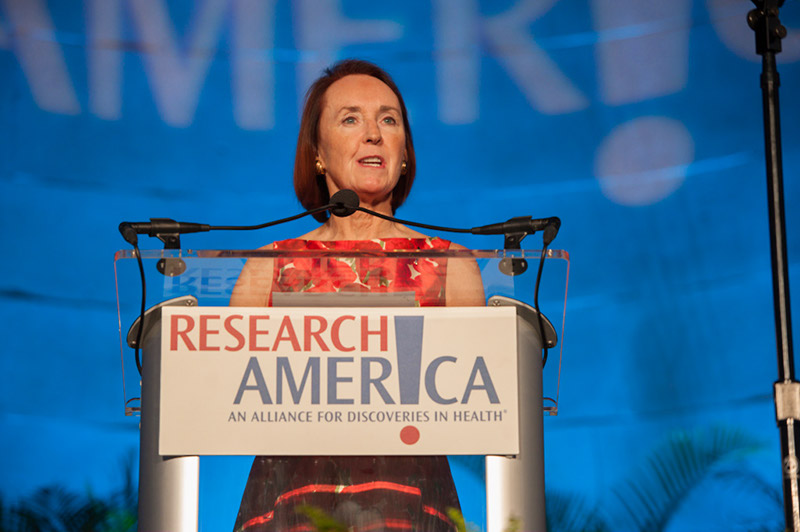Changing the image of things to come

 Dear Research Advocate,
Dear Research Advocate,
I was honored to speak yesterday to a group of early-career global health researchers, plus alums and mentors, gathered for orientation and training under the auspices of NIH’s Fogarty International Center. Following my prepared remarks we had a terrific informal discussion. A question from a researcher who had grown up in Kentucky triggered a thoughtful exchange: “how do I explain the value of my work to a resident of rural Kentucky, including why her taxes should pay for it?” These two linked but separate questions can seem quite daunting if, like most researchers, you have never been oriented, much less trained, to consider the public context of research. We’re overdue for a smart, systemic, new approach. As it happens, there is a real- time opportunity to change the image of things to come. Read on…
The National Academies’ Revitalizing Graduate STEM Education for the 21st Century ad hoc committee, Chaired by Research!America board member, Dr. Alan Leshner, and on which Research!America board member Dr. Keith Yamamoto also serves, is accepting public comments. This is an opportunity to weigh in on the importance of incorporating advocacy into the graduate science curriculum training to achieve fluency in the public context of science. We know anecdotally from young scientists that they want to step up effective engagement with the public, and we know from policymakers (via repeated statements) and the public (via survey responses) that it’s important for scientists to communicate about their work, explaining how it serves the public’s interest. Learning how to communicate effectively to a wide range of audiences is a career and life-enhancing skill; the best time to learn it is in graduate school!
Last week, the House Agriculture (Ag) bill, which provided flat funding for FDA, and the House Commerce, Justice, Science (CJS) bill, which featured a 1.78% cut to NSF, both passed Full Committee. And yesterday, the House Appropriations Committee passed the Labor-H bill, a mixed bag for stakeholders in medical and health research: $7 billion for CDC (about $200 million below FY17), a $1.1 billion increase for NIH (inclusive of $495 million in Cures funding), and $300 million for AHRQ ($24 million below FY17 levels). In reference to CDC, Labor-H Chairman Tom Cole (R-OK) said: “I think [CDC] is actually one of the best buys the government does.[…] So if we go forward, I will tell you one of my priorities is to try and get that number back to where we were at, if not a little bit above.”
Chairman Cole and the many bipartisan champions of research are doing their best with one hand tied behind their (budgetary) backs. This is why we must all commit to convincing congressional leadership to #RaiseTheCaps. Doing so will take more than one sign-on letter or ten; it’s going to take advocates making the case day in and day out until the deal is done. I cannot stress this enough: a budget deal is imperative if the goal is a better funding picture than the House bills paint. Please, get involved.
Today, members of the Senate Ag Subcommittee advanced their bill, which includes a $1 million increase for FDA budget authority and, like the House bill, rejects the Administration’s proposal to double user fees. Both House and Senate Ag bills closely reflect the user fee levels included in the FDA Reauthorization Act (FDARA), which passed the House and is awaiting consideration in the Senate. If this bill is not signed into law by the end of the month, FDA will have to send out an estimated 7,000+ reduction in force (RIF) notices.
Downsizing staff is the last thing anyone wants to see happen at the FDA. This week, Commissioner Scott Gottlieb announced a pilot initiative to increase hiring efficiencies, but its success hinges on the passage of FDARA. Research!America sent a letter to Senate leadership today urging them to bring FDARA to the floor for a vote before the end of the month. Send a message to your representatives to echo this call.
Lastly, I am heartbroken to report that long-time research advocate, philanthropist, thought-leader, founding director of Research!America and friend, Dr. Raymond Sackler, died earlier this week at age 97. As many of you know, each year Research!America awards the Raymond and Beverly Sackler Award for Sustained National Leadership to an esteemed scientist who is also distinguished as an advocate for science. This year’s honoree was Dr. Phillip Sharp. We will continue to celebrate the life and legacy of Dr. Sackler through this award and though our efforts every day to speed medical progress. Beverly, Richard, Jonathan and the entire Sackler family are in our thoughts during this difficult time.
Sincerely,
Mary Woolley




